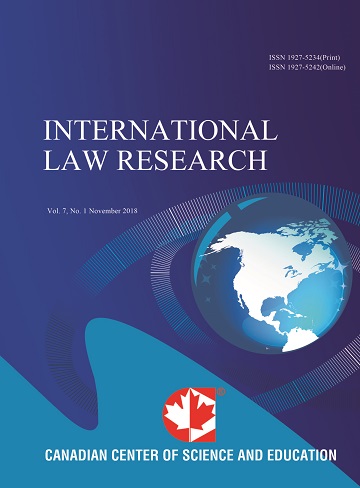Preventing the Regulatory Chill of International Investment Law and Arbitration
- Atif M. Alenezi
Abstract
International investment law has increasingly come under attack because it does not put host states on par with foreign investors. Foreign investors can evoke broad investment rights and pursue investment arbitration. The threat of substantial arbitral awards can result in host states not enacting policies, regulations, laws or reaching decisions, despite them being needed in order to protect a variety of important public interests. The concern is, therefore, that international investment law, including the investor-state dispute resolution system, causes a regulatory chill. The paper examines how the asymmetric relationship between foreign investors and host states can be remedied, so that trust in international investment law is strengthened and its legitimacy crisis is overcome. One core issue with international investment law is that the customary international minimum standard and its therein subsumed full protection and security, and fair and equitable treatment and compensation principles are inherently vague, thereby contributing to the overprotection of foreign investors. Arbitral cases further highlight how regulatory changes can result in host states incurring liability and thus enable foreign corporations to shift potential costs and risks. International, and national solutions to prevent the regulatory chill of international investment agreements are spelled out.
- Full Text:
 PDF
PDF
- DOI:10.5539/ilr.v9n1p85
Journal Metrics
h-index (2017): 2
i10-index (2017): 0
h5-index (2017): N/A
h5-median (2017): N/A
Index
- CNKI Scholar
- COPAC
- CrossRef
- DTU Library
- EuroPub Database
- Excellence in Research for Australia (ERA)
- Ghent University Library
- Google Scholar
- Harvard Library
- Infotrieve
- Jisc Library Hub Discover
- LOCKSS
- Open J-Gate
- PKP Open Archives Harvester
- Publons
- ROAD
- Scilit
- SHERPA/RoMEO
- Stanford Libraries
- Ulrich's
- UniCat
- Universe Digital Library
- UoS Library
- WorldCat
Contact
- Joseph TaiEditorial Assistant
- ilr@ccsenet.org
